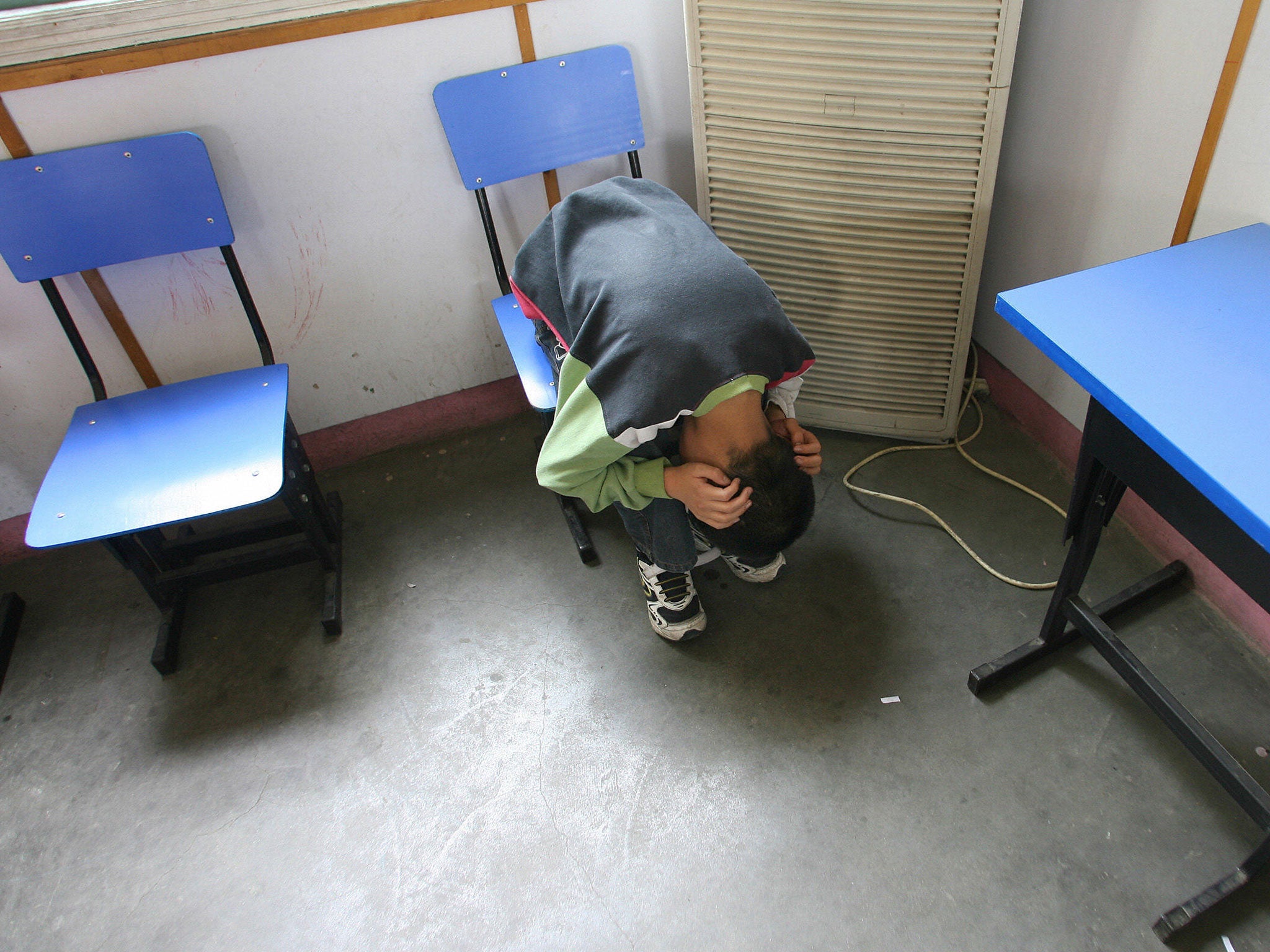Adults with learning disabilities at risk of abuse, say charities
More than 2,300 disabled adults with difficult behaviour are detained unnecessarily, according to campaigners

Your support helps us to tell the story
From reproductive rights to climate change to Big Tech, The Independent is on the ground when the story is developing. Whether it's investigating the financials of Elon Musk's pro-Trump PAC or producing our latest documentary, 'The A Word', which shines a light on the American women fighting for reproductive rights, we know how important it is to parse out the facts from the messaging.
At such a critical moment in US history, we need reporters on the ground. Your donation allows us to keep sending journalists to speak to both sides of the story.
The Independent is trusted by Americans across the entire political spectrum. And unlike many other quality news outlets, we choose not to lock Americans out of our reporting and analysis with paywalls. We believe quality journalism should be available to everyone, paid for by those who can afford it.
Your support makes all the difference.Thousands of people suffering from autism and learning disabilities are being locked up and receiving inappropriate or dangerous treatment when they should be cared for in the community, campaigners have warned.
Relatives and charities are calling for disabled adults with difficult behaviour currently sectioned under the Mental Health Act to be released to receive better treatment more cheaply at home or in the community.
More than 2,300 are detained unnecessarily, according to the campaigners. The revelation comes just weeks after the Care Quality Commission admitted a woman with severe learning disabilities had been locked in a hospital room by herself for nine years.
Discovered in 2011, the patient identified as “Lisa” had been forced to sleep on a beanbag, and had food delivered and her hair brushed by staff through a hatch in the wall.
Jan Tregelles, chief executive of Mencap, said there “can be no excuses” for carers using hospitals as long-term homes for learning-disabled adults with challenging behaviour.
“Too many vulnerable people remain in assessment and treatment units where we know they are at significant risk of abuse and neglect, and recent figures show that more people are being sent to such places than coming out of them.
“There is no money for argument here. People are being sent to high-cost units and receiving inappropriate care when, for the same money or even less, the support and services that are right for them could be developed in their community.”
Kevin Healey, who campaigns for better rights and treatment for people with autism, said: “These cases are appalling. We’re in the 21st century now but it’s like we’re living in the 1940s when autism was newly discovered.
“Society institutionalises it. These people need a unique care package. They should be integrated into society, not locked away.”
Among the campaigners is Leo Andrade, who is launching her own legal battle to see her 19-year-old son, Stephen Andrade-Martinez, brought home. Stephen has severe autism and self harms but is detained in a psychiatric ward, which does not have the expertise to support him, at a cost of more than £110,000 a year.
Ms Andrade, who said she was unable to recognise her son “because of the amount of drugs he was being given”, claimed he is locked up without access to the outside for weeks at a time.
Barrister Alex Rook, who has worked on the issue with law firm Irwin Mitchell, said he was aware of cases where the decision to hospitalise a patient with learning disabilities had led to a deterioration in behaviour and health.
“If they end up in hospital they react badly and their behaviour escalates, and then, as we can see, it’s a spiral,” he said. “They end up not really knowing how to care for this individual and not applying the Mental Capacity Act.”
Case study: ‘They didn’t understand her needs’
Cath Dyer won her fight to have her autistic daughter, Claire, 20, brought back home last month. Claire was sectioned three years ago after her behaviour became more difficult for nurses at her care home to manage.
Her parents were told the arrangement would give carers the rights to look after her more effectively, and they agreed. Under the agreement she was still able to spend most days at home with her family, returning to the care facility at night.
But after her behaviour deteriorated, she was moved without the family’s consent to a mental-health institution in Brighton – 230 miles away from her home in Swansea.
Her mother says the facility, which was not designed to support autistic residents, could not provide her with the help she needed. “They admitted she was in the wrong place,” Mrs Dyer said. “She is autistic and this was a mental health facility. They didn’t understand her communication issues and they didn’t understand her needs.
“That was one reason for her behaviour escalating.”
After a long legal campaign, Claire’s section was removed and she is now receiving support at home with her family.
Join our commenting forum
Join thought-provoking conversations, follow other Independent readers and see their replies
Comments